By Simina Mistreanu
Two weeks ago, I received feedback from several readers on a column about the “growing self.” In it, I was arguing that in Chinese culture people are often expected to inherit certain attributes through their birth and upbringing and not change much during adulthood. On the other hand, protagonists in Western culture are more often changed as a result of their life experiences.
这两天,我陆续收到我的专栏文章《我们真的能改变潮水的方向吗:一个外国人眼里的中国90后》的一些评论反馈。那篇文章里,我提出在中国文化里,人们常常屈服于自出生起就被设定好的人生轨迹,而在西方社会,每个人都是自己人生的主人公,每个人的命运也都是起伏不定。
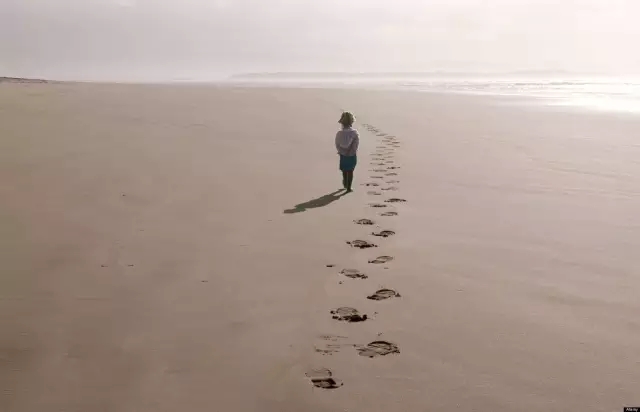
Some readers said Chinese reality is more diverse than the concepts and anecdotes I used in my column. Of course it is. They also said it was a Westerner’s point of view, which I can only agree with: I am a Westerner albeit one who was born in communist Romania.
一些读者认为时下中国比我在文章里提到的已经多样化很多了,这当然是事实。他们还说我所有的观点都是从西方人的角度出发,这我也只能同意了,毕竟我就是一个出生在社会主义罗马尼亚的欧洲人。
But I don’t want to fuel an old cultural divide. Instead, I’d like to encourage critical thinking.
不过今天,我并不想再次挑起文化差异这个旧话题。我想说说对批判思维的理解。
My favorite recent discovery in terms of psychology and life-planning writing is the blog WaitButWhy.com.
我最近爱看一个关于心理学和人生规划的博客网站WaitButWhy.com。
The author, Tim Urban, reflects on different aspects of life, personal growth and relationships, and then writes long, meandering and brilliant posts filled with basic drawings of people and animals.
作者Tim Urban从生命,个人成长和恋爱关系的不同角度,写下一篇篇洋洋洒洒的长文,还穿插一幅幅人和动物的简笔画。

In a recent series of posts, he analyzed the companies and thought processes of Elon Musk, an entrepreneur who has created PayPal (the online payment company); Tesla (the electric car company) and Space X (the space company that aims to colonize Mars).
在他最近的作品中,Tim写到了Elon Musk——PayPal,Tesla和Space X的创始人。
After extensive posts about Musk’s life, his company Tesla and his company Space X, Urban wrapped the material up in a post he called “The Cook and the Chef: Musk’s Secret Sauce”. The post explains what makes Musk and other great thinkers different from regular people.
Tim写到了Musk的生活,他的企业Tesla和Space X,最后汇总成一篇博文“The Cook and the Chef: Musk’s Secret Sauce”。
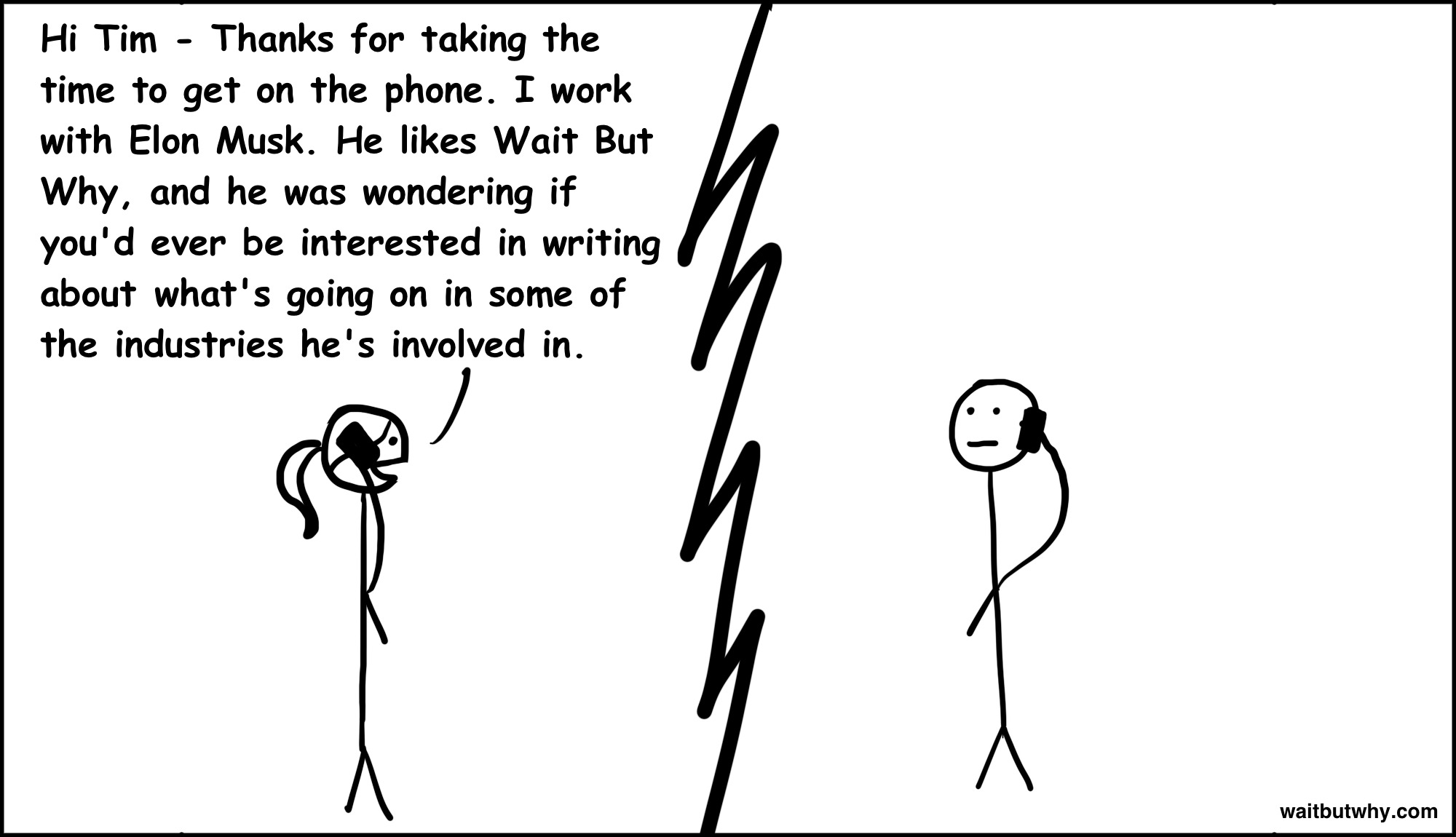
I will give you a very brief run-through of the 21,000-word article.
文章有21000字,我简单复述一下。
According to Musk, human brains are similar to computers. We have the “hardware” – our innate abilities, such as the IQ, and the “software” – our ways of thinking, analyzing information, seeing the world and making decisions. What sets bright people apart from others is their “software,” not their innate abilities.
Musk认为,人类的大脑和电脑很相像。我们有“硬件”——天赋或者智商,也有“软件”——思维方式,信息分析能力,世界观还有决定力。聪明人之所以聪明,是因为他们的“软件”而不是智商。
When we make choices, we analyze what we want (Urban calls this the “Want” box) and what is possible (the “Reality” box). At the intersection of these two boxes is a pool of “Goals” that we can choose from and work to accomplish.
面临选择,我们会分析,我们想要什么,还有可能得到什么。两者的重叠之处就是可供我们选择的目标和事业。
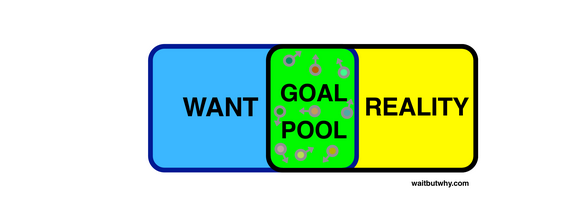
The problem is that both our “Want” and our “Reality” boxes are governed by other people’s thinking. We are taught to want a certain career, family structure and lifestyle, and when we begin questioning why, we eventually hit a wall where society, our family, our culture, the company we work for and so on says “Because I say so.” We start hearing that answer when we’re children, from our parents, and it continues in different forms throughout our lives.
问题就在于,我们的想要和可能得到的东西都被他人左右。我们从小就被教导,要有稳定的职业,家庭和生活,当我们开始质疑为什么如此的时候,我们的面前就会竖起一堵墙,这是来自社会,家庭,文化和公司的合音:“我说的就是对的。”儿时起,我们就从父母那里得到同样的答案,并且随着长大,这个答案不断被强化。
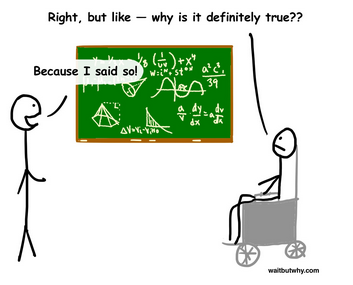
What Musk does differently is “first-principle reasoning”: he doesn’t use “common knowledge” – also known as dogma – but instead goes back to the fundamentals of the issue that interests him and works his own way up from there.
Musk与众不同的一点就是,他舍弃了“常识”,回归到自己的兴趣点和做事方式。
For example, when Musk was interested in building rockets and exploring Mars, common knowledge told him that it’s cost-prohibitive for a private company to build rockets. But he didn’t take that knowledge for granted. Instead he calculated himself the cost of materials that go into building a rocket. He realized the materials make up only 2 percent of the total cost of building a rocket. So it was possible to build cheaper rockets. Urban writes:
例如,当Musk对造火箭探索火星感兴趣时,常识告诉他,一个私营公司是不可能承受造火箭的成本的。然而他并没有就此罢手。他计算了建造火箭的原料成本,并且知道了原料只占整个火箭成本的2%。因此建造出一个造价低的火箭是可能的。
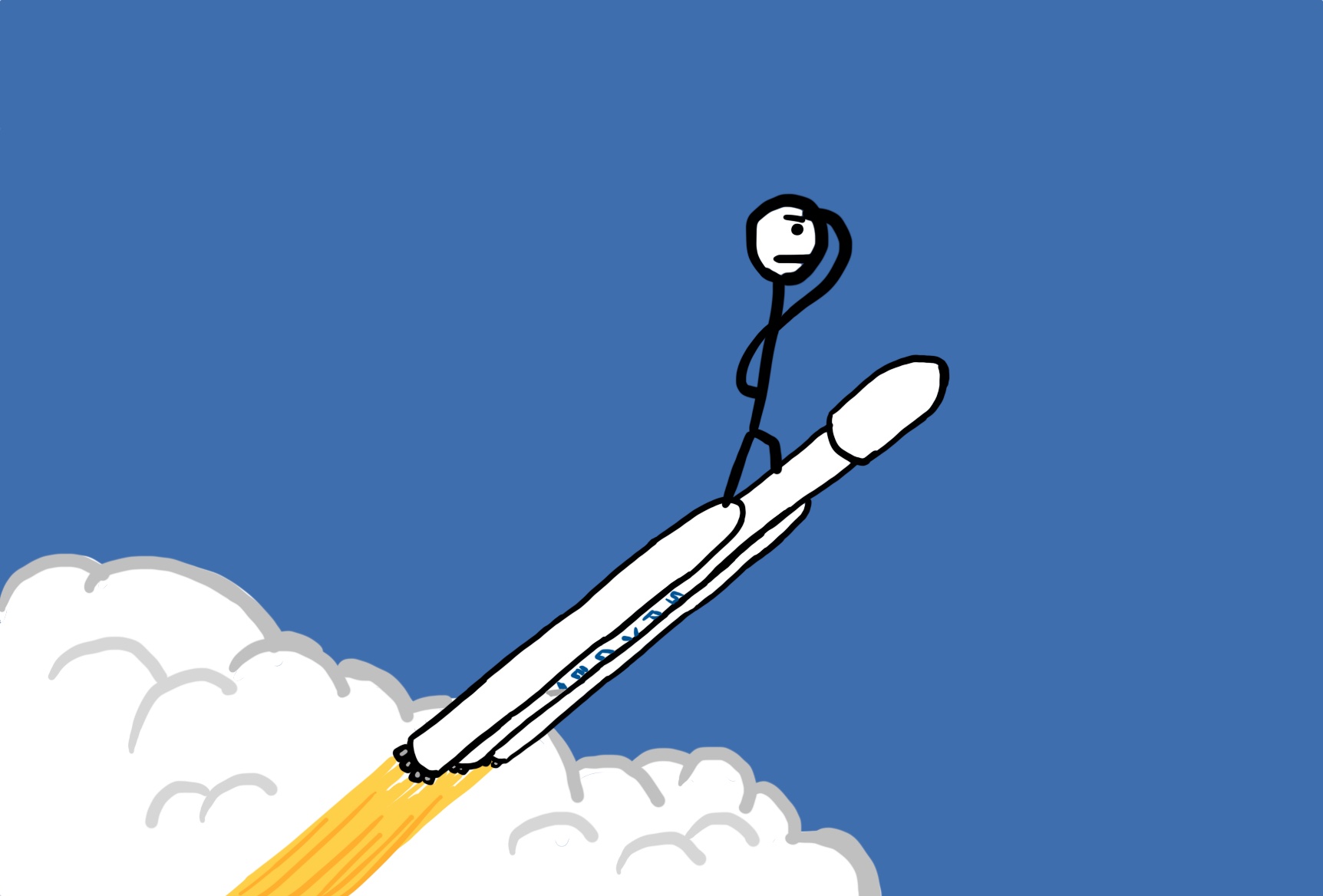
History, conventional wisdom, and his friends all said one thing, but his own software, reasoning upwards from first principles, said another—and he trusted his software. He started SpaceX, again with his own money, and dove in head first. The mission: dramatically lower the cost of space travel to make it possible for humanity to become multi-planetary.
历史,世俗的认知,甚至朋友都劝他放弃,但是他坚持本心,他相信自己的思想。他自己投资创立了Space X,公司目标就是,降低星际穿越的成本,让人类可以跨星球居住。
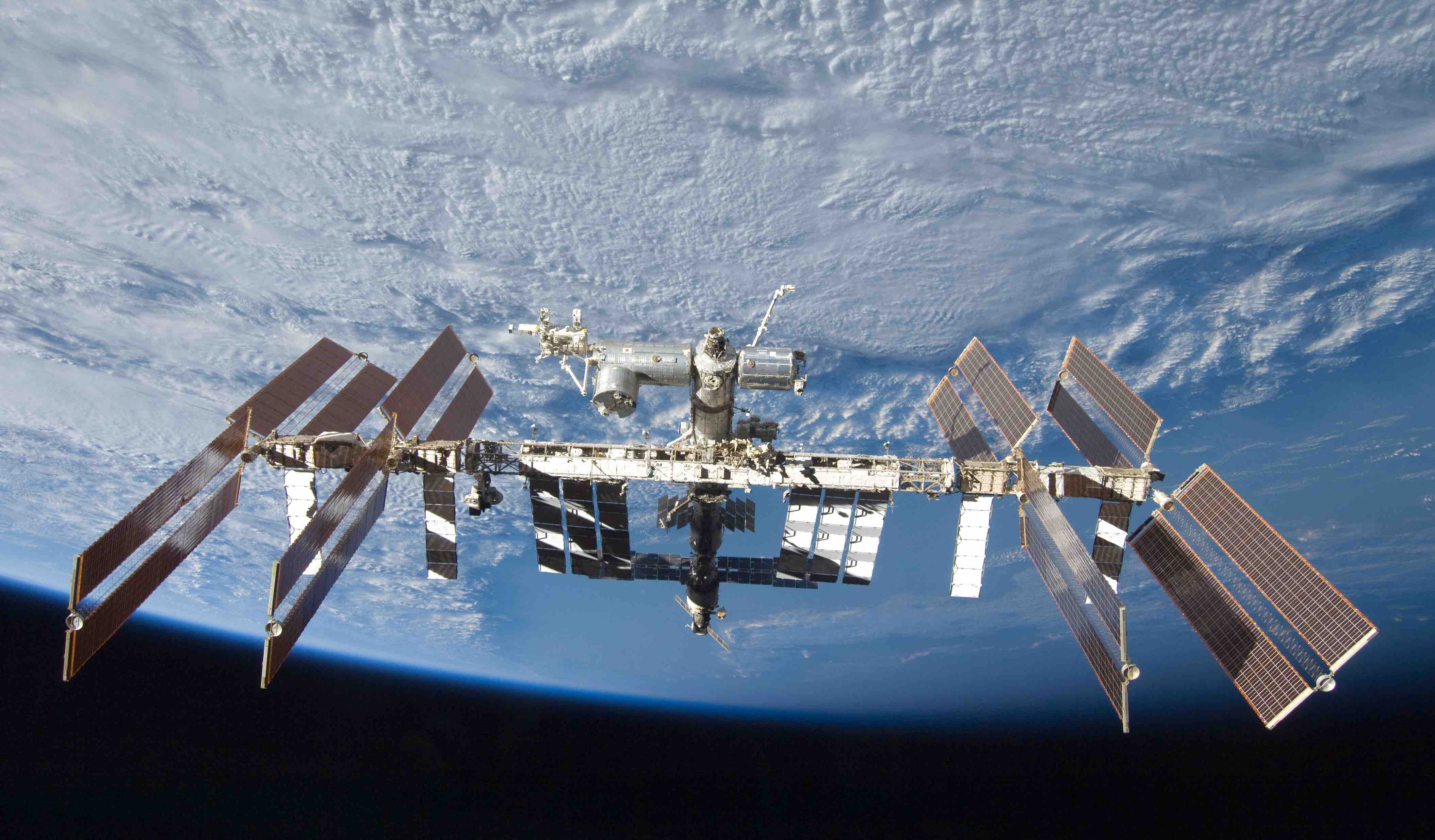
In similar ways, Musk has revolutionized the car and the solar energy industries.
同样的,Musk改造了整个汽车和太阳能工业。
So if Musk stands out not through his intelligence, but through the way he approaches problems, why can’t the rest of us build innovative, breakthrough lives and legacies?
既然Musk可以凭借他解决问题的方式,而不是天赋脱颖而出,为什么我们不能用创新打破常规生活和传统呢?
Musk’s secret sauce is that he’s the only one being normal. And in isolation, Musk would be a pretty boring subject—it’s the backdrop of us that makes him interesting.
Musk的秘密武器就在于,他是唯一的一个正常人。是我们这些芸芸众生把Musk衬托的如此不平凡而有趣。
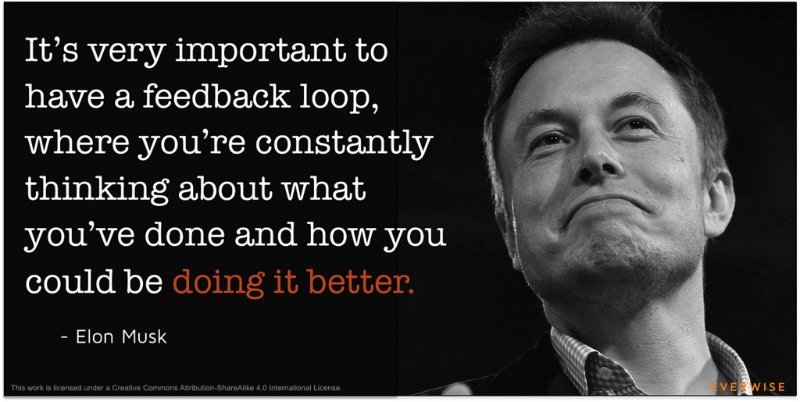
Basically, Urban says, “the deal with us” is that we’re trapped by dogma – living with the results of other people’s thinking – and by fear. Fear is a residual instinct that we’ve kept from our earlier evolutionary stages, but in reality, Urban says, there’s little to be afraid of today that might kill us or hinder our ability to reproduce, which is what fear serves animals for.
Urban认为,我们为教条所限,为他人的眼光和期待而战战兢兢的活着。恐惧——这种从人类进化时期就保留下来的直觉——直到今天还在,尽管那些曾经让我们感到恐惧的自然环境早就不复存在了。
Discarding the pressure to find the right way to live (based on what others believe is the right way to live), and the false need to be afraid are very liberating.
抛弃一定要找到对的生活的压力和恐惧的虚无源头,人生才会轻松。
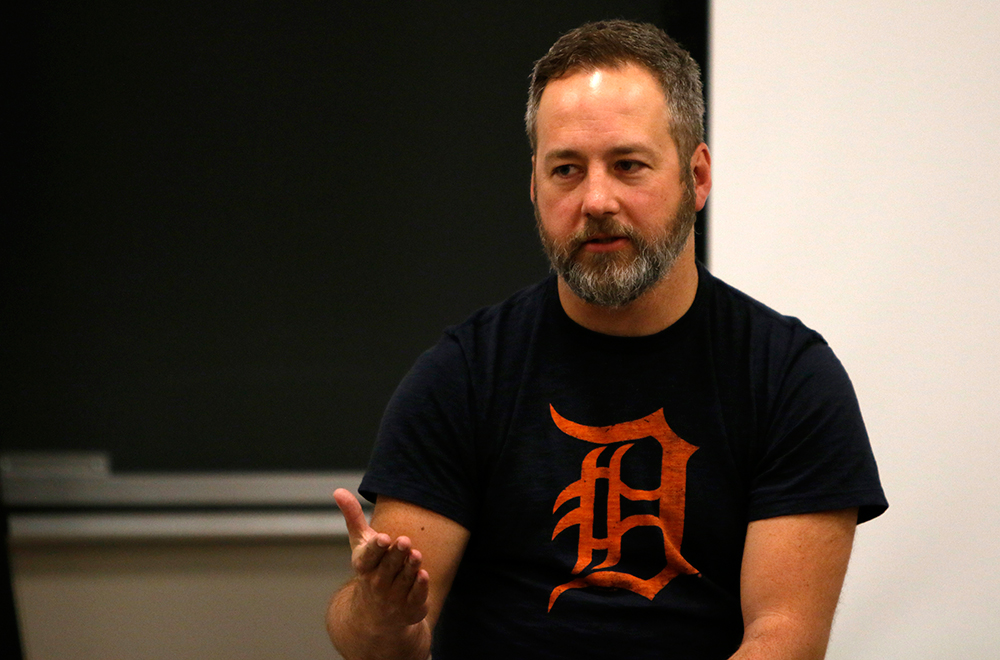
As one writer whom I love, Chris Jones of Esquire, said during a conference in Romania: “And this is about more than the writer’s life. I can wish for you all sorts of things, I can wish for you that you get the job that you want, that you meet the man or the woman of your dreams, that you grow up to be rich and healthy and happy. Or I can wish for you the one thing that takes care of everything else. That one day you will not be afraid.”
就像我喜爱的《Esquire》作家Chris Jones在罗马尼亚一场会议上说的那样:“我祈祷你一切顺利。我祈祷你得到心爱的工作,遇见所爱之人,我祈祷你富有,健康和快乐,我祈祷你没有恐惧。没有恐惧,这是一切美好事物的开端。”



评论